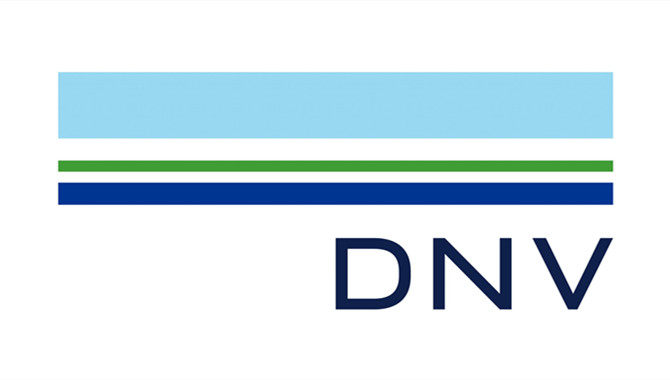
DNV and BHP have announced a partnership focusing on the use of DNV's independent cloud platform, Veracity, to enable timely and accurate greenhouse gas (GHG) emissions reporting, management and insights from BHP's chartered vessels.
The project aims to support BHP in its ongoing efforts to see Scope 3 GHG emissions from its chartered vessels reduced.
Commodity producers and vessel charterers are increasingly understanding the need to report, influence and support the reduction of Scope 3 GHG emissions occurring in their value chains. This creates the need for a sound strategy and fit-for-purpose digital solution to support the journey towards net-zero GHG emissions.
The improved transparency resulting from the introduction of the International Maritime Organization's GHG emission reporting scheme combined with automatic and daily GHG emission reporting capabilities are key enablers for the service offered. Consequently, DNV has built a standardised solution on Veracity tailored to Scope 3 GHG emissions management.
DNV's solution is aimed at vessel charterers and commodity producers and will be implemented by BHP for all of its maritime freight operations. Combining this with DNV's extensive maritime domain and regulatory competency, BHP will be well-positioned to receive the support it needs, from gaining a trusted overview of the GHG emissions footprint of its maritime freight operations to receiving technical guidance on aspects of its Scope 3 GHG emissions reduction strategy.
BHP's Head of Maritime Sustainability and Supply Chain Excellence, Sarah Greenough, highlighted BHP's long-standing relationship with DNV, declaring this latest partnership as essential to elevating the sustainability standards and actions for its maritime freight operations. It also underscores the importance that BHP and its customers place on long-term sustainability transparency and progress across the supply chain.
“BHP recently announced a goal to pursue net zero Scope 3 emissions by 2050 and DNV's Veracity platform will be a key enabler in our maritime decarbonisation journey,” said Greenough.
“Veracity creates visibility and assurance of the GHG emissions reported by vessel owners and operators in our supply chain. The platform will enable us to have more targeted conversations on decarbonisation and compliance, analyse performance against industry benchmarks and measure progress towards our Scope 3 goals. DNV's regulatory experience and industry reach, and Veracity's leverage of verified and quality-assured emissions data for more than 10,000 vessels, made them a logical partner of choice.”
“We expect this partnership with DNV, along with our other commitments and actions on sustainability, will become a competitive advantage in creating more sustainable products and value chains, and deliver greater transparency to our customers and ecosystem,” Greenough added.
Knut Ørbeck-Nilssen, CEO of DNV Maritime, said:
“For many companies, a significant share of greenhouse gas emissions associated with their businesses occurs within their value chains and can represent a blind spot when it comes to holistic emissions reporting. But if these emissions can be measured then they can be managed and, crucially, reduced. As a forward-looking company, BHP recognizes this, and we are delighted that they have chosen DNV and Veracity as its partners on this critical step towards decarbonization and compliance.”
Veracity's Executive Director, Mikkel Skou compliments BHP for the dry bulk charterer's clear decarbonization ambitions for activities in its value chain and for the use of data-driven reporting to help reach its goals.
“It is impressive to see the determination with which BHP is working towards carbon neutral maritime operations. Being one of the world's largest dry bulk charterers, BHP has the opportunity to influence action in the global industry where emissions are difficult to abate. It is a perfect fit with our ambition to be a trusted partner in industry digitalization and with DNV's long-standing position in the field of maritime decarbonization,” says Skou.
The solution that DNV is providing to BHP collects data from the charterer's enterprise system. It then validates, processes and quality-assures the data according to the schemes agreed upon with BHP. This enables production of trusted Scope 3 GHG emission reports as required for BHP's external reporting.
However, this creates new requirements of trust in data, data standardization and access to data. In addition, many organizations will need to fill in the gaps, where data is unobtainable or of insufficient quality.
With DNV's vast maritime database, sophisticated data models and maritime domain expertise, the company uses analytics models to predict the data that is missing, enabling customers to create a complete, transparent and trustworthy report on Scope 3 GHG emissions.
“We believe most commodity producers and charterers face the same challenges as BHP with regards to data availability and quality, including the need for a holistic approach to strategies for Scope 3 emission reduction. It is therefore DNV's ambition to continue investing in these solutions,” said Skou.
The opinions expressed herein are the author's and not necessarily those of The Xinde Marine News.
Please Contact Us at:
media@xindemarine.com


 Ningbo Containerized Freight Index Weekly Commentar
Ningbo Containerized Freight Index Weekly Commentar  Ningbo Containerized Freight Index Weekly Commentar
Ningbo Containerized Freight Index Weekly Commentar  Ningbo Containerized Freight Index Weekly Commentar
Ningbo Containerized Freight Index Weekly Commentar  BIMCO Shipping Number of the Week: Bulker newbuildi
BIMCO Shipping Number of the Week: Bulker newbuildi  Ningbo Containerized Freight Index Weekly Commentar
Ningbo Containerized Freight Index Weekly Commentar  Ningbo Containerized Freight Index Weekly Commentar
Ningbo Containerized Freight Index Weekly Commentar